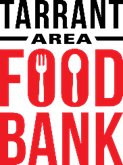With food insecurity on the rise, Tarrant Area Food Bank (TAFB) is calling on Texas lawmakers to address hunger & its causes during the 89th Texas Legislature.
ORT WORTH, TEXAS – Recent data from the U.S. Department of Agriculture (USDA) annual study reveals that Texas has the second-highest food insecurity rate in the nation at 16.9%, a 1.4% increase from last year. In TAFB’s 13-county service area, food insecurity has risen by 21%, impacting over 512,000 individuals.
“The rising costs of necessities like groceries, housing, childcare, and transportation are straining household budgets,” said Julie Butner, TAFB President & CEO. “As food insecurity climbs, it’s critical that Texas lawmakers champion solutions that address hunger and its causes.”
Legislative Priorities to Address Hunger
As a member of Feeding Texas—a network of 20 food banks serving all 254 counties—and in partnership with the Texas Food Policy Roundtable (TFPR), a group of over 80 organizations committed to ending hunger, TAFB is working to ensure that our neighbors have access to nutritious food. TAFB has joined Feeding Texas and TFPR to develop a shared legislative agenda.
Key priorities include:
The first section of TAFB’s shared legislative priorities with Feeding Texas and TFPR focuses on increasing access to food and improving nutrition. Together, they are calling on lawmakers to:
- Streamline the SNAP eligibility process and increase efficiencies with periodic reporting, which reduces workload and administrative costs. 6-month periodic reporting is a proven tool to reduce workload and administrative costs, enhance program integrity, and systemically fix our state’s current backlog of SNAP applications. If supported, this change could save over $33 million in state funds annually.
- Keep kids fed by implementing Summer EBT. More than one third of children experience hunger in TAFB’s service area, which spikes in the summer because millions of children lose access to school meals. Summer EBT is a new program that would provide low-income families with children $120 in food benefits during the summer.
- Improve health outcomes and reduce state healthcare costs by developing a streamlined Medicaid reimbursement model that integrates food bank services into our healthcare system and enables doctors to prescribe healthy food.
- Modernize the eligibility system to fix problems with TIERS. System errors and glitches within TIERS, the system that enrolls Texans in SNAP, Medicaid, and TANF, have led to application processing delays and inaccurate denials.
Two Additional Local TAFB Strategic Priorities:
TAFB is also focusing on two local strategic priorities that impact neighbors facing food insecurity across its 13-county service area. Through listening sessions with partner agencies, community stakeholders, and neighbors facing food insecurity, TAFB has identified these key solutions to tackle these challenges. In collaboration with local partners, TAFB has prioritized these strategies as solutions that can significantly reduce hunger and improve community well-being. Texas lawmakers can play a critical role in this effort by supporting legislation to:
- Increase access to nutrition-focused healthcare: Hunger and health are deeply connected. Individuals facing food insecurity are more likely to experience diet-related illnesses and associated costs, and face barriers to accessing care to improve their health. The Tarrant Area Food Bank currently partners with local healthcare systems to alleviate hunger and improve health by providing nutritious food to neighbors facing diet-related illnesses through its Food Rx program and Medically Tailored Meals.
- Expand access to affordable childcare: Provide working families with access to quality childcare, freeing resources for other essential needs like food. Tarrant Area Food Bank is currently developing it’s Ready to LearnTM Community Resource Center for neighbors facing food insecurity to access resources that address additional causes of hunger, including providing affordable childcare for families facing food insecurity.
Tarrant Area Food Bank also recognizes that hunger is closely connected to other legislative topics that may be addressed such as the food and agriculture system, housing affordability, financial security, transportation and mobility. Legislation addressing these areas can help reduce hunger and strengthen communities.
“Working together with the Texas Legislature, community partners, and our neighbors, we will solve hunger.” Butner said.
For more information about TAFB’s policy priorities, visit: www.tafb.org/advocate







